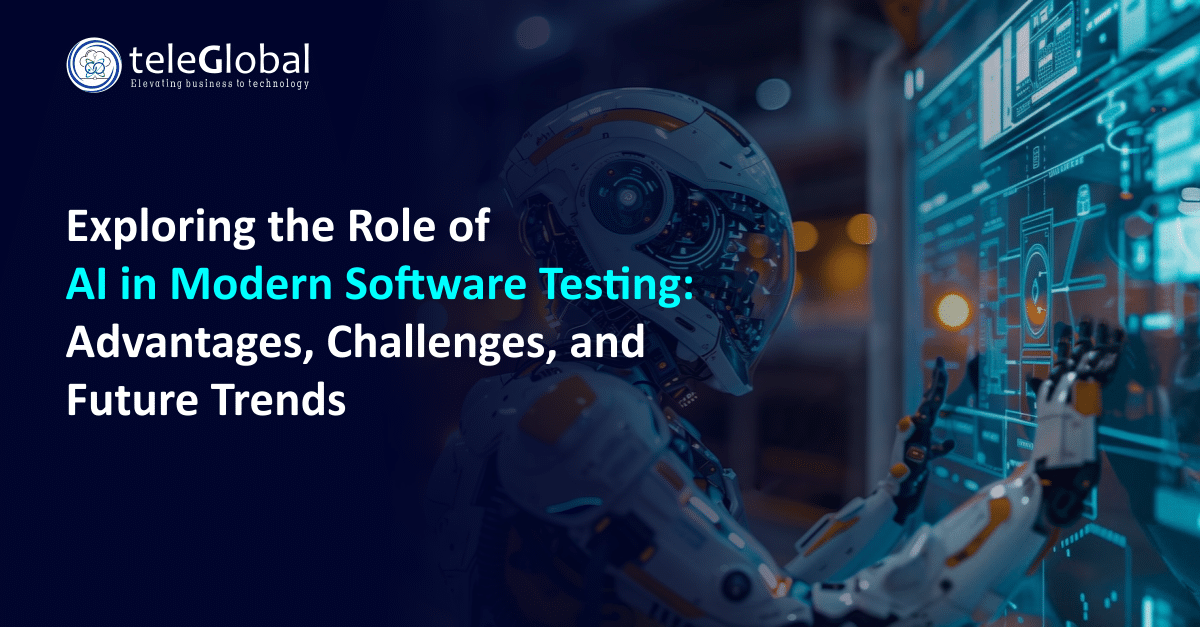
The utilization of Artificial Intelligence in software testing has transformed our testing methodologies. Through the capabilities of AI, software testing can become more powerful, streamlined, and trustworthy. Testing tools powered by AI can automate tedious and repetitive assignments, allowing manual testers to concentrate on more intricate testing scenarios. Furthermore, these tools can aid in the detection and anticipation of flaws in the software, enhancing the precision and comprehensiveness of the testing process.
AI plays a growing role in testing as Software Testing Company strives to minimize testing and deployment time and resources. By automating repetitive testing activities, organizations can expedite release cycles and improve the overall quality of software. Additionally, AI-driven testing tools can help companies detect and resolve software defects before they become significant problems. Ultimately, AI-driven testing tools offer a way for businesses to conduct faster and more reliable software testing, presenting an appealing solution for those looking to streamline their testing procedures.
What is AI Testing
AI in testing empowers organizations to achieve faster release cycles, improve software quality, and respond more effectively to dynamic market demands. By leveraging AI’s capabilities, businesses can transform their testing processes from reactive to proactive, driving innovation and delivering exceptional user experiences. The use of artificial intelligence in testing is revolutionizing software quality by using advanced algorithms and technologies to simplify and improve various aspects of the testing process. AI also improves defect prediction and analysis by using historical data to proactively identify potential problems early in the development cycle. Also, AI devices that possess the ability to process Natural Language Processing (NLP) can interpret and create test cases based on user specifications, leading to better alignment between business needs and test outcomes. Moreover, the visual testing capabilities of the AI allow recognition of UI elements and maintain consistency across platforms.
Advantages AI Offers to Software Testers and Companies
Proactive Maintenance:
Based on historical data and real-time analytics, AI can forecast potential defects and performance issues. By taking a proactive approach, this enables companies to address issues before they affect end-users, thus reducing downtime and customer dissatisfaction. Artificial intelligence-based predictive maintenance transforms reactive maintenance into proactive strategies, companies can stay ahead of potential problems and maintain high performance standards for their software and IT infrastructure.
Supporting Agile and DevOps Methodologies:
AI’s integration with Agile and DevOps techniques enables the automation of testing for both continuous integration and continuous deployment (CI/CD) pipelines. This alignment facilitates rapid feedback, collaboration between development and test teams, and faster resolution of issues. Integrating AI into DevOps and Agile practices improves efficiency, effectiveness and collaboration in software development and deployment processes. This integration is critical for organizations striving for agility, innovation and competitive advantage in today’s dynamic software development environment.
Enhanced Precision:
AI-based testing tools reduce human errors in testing activities. Their ability to conduct experiments without fatigue and bias ensures that their results are more reliable and repeatable. This accuracy is critical for detecting subtle defects that may be missed by manual testing. The capabilities of artificial intelligence allow organizations to achieve more dependable test results, identify flaws earlier in the development process, and ultimately provide users with superior software quality.
Challenges AI faces in Software Testing world.
The ethical and legal aspects of the matter:
Testing with artificial intelligence on data protection, security and ethical issues is a challenge. All these reasons are important. Ensuring compliance with regulations such as GDPR, especially when processing sensitive user data in test environments, requires careful consideration and implementation of ethical AI practices.
The reliability of training data:
AI models require abundant, high-quality training data to effectively learn and perform tasks.Testing software often requires the use of diverse and representative data sets that address all possible scenarios and extreme cases. Data distortions can lead to biased predictions or incomplete test coverage.
Over-dependence on automation:
AI can automate a lot of testing, but it could lead to excessive automation that undermines human creativity and judgment. Human testers provide critical insights, intuition and context that AI algorithms may not fully replicate. By balancing automation with human judgment and creativity, organizations can leverage the strengths of both AI and human testers to deliver high-quality software that effectively meets technical standards and user expectations.
Upcoming Trends in software testing
Advancements in AI-Powered Autonomous Testing
In the coming years, a significant transformation is anticipated with the emergence of advanced automation and self-repairing systems in testing. Deep learning AI algorithms are poised to evolve into autonomous entities capable of independently identifying issues, generating relevant test cases, and dynamically adapting to software changes. This evolution aims to greatly reduce the need for manual intervention in maintenance processes.
Enhancing AI Testing Through Predictive Models and Analysis
Predictive tests and AI algorithms are integrated into important AI testing components to account for future needs. Predictive models are created using machine learning to identify possible flaws and act before a negative outcome occurs. The importance of analysis cannot be overstated when attempting to analyze large data sets and developing specific testing strategies with effective decision-making information.
Ethical Considerations in AI Testing
The rise of artificial intelligence will certainly bring ethical issues into the spotlight. Ethical testing guidelines for AI must be transparent and impartial, while also ensuring that decision-making is not biased. It is likely that frameworks will be developed based on responsible AI testing, which requires consideration of ethical issues and the creation of guidelines on how to use AI responsibly in testing processes.
Conclusions
Artificial intelligence has revolutionized software testing with its advanced automation, predictive analytics and performance capabilities, but the human element is still essential. AI excels at repetitive tasks, scalability and data insights that greatly increase the speed and reliability of testing processes. At TeleGlobal International, we combine cutting-edge AI technologies with the expertise of our seasoned manual testers to deliver comprehensive Software Testing Services. This synergy allows us to offer agile testing solutions that ensure optimal software quality, meeting the diverse needs and expectations of our clients effectively. Thus, while AI-based tools are constantly evolving and improving, synergy between AI and human testers is still necessary to achieve optimal software quality and meet the diverse needs of stakeholders.







































